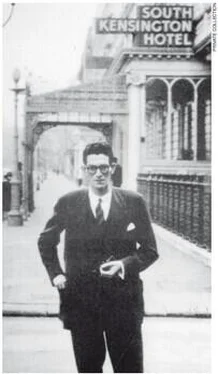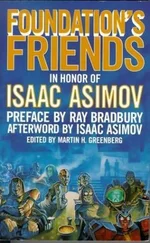Ben Macintyre - A Spy Among Friends
Здесь есть возможность читать онлайн «Ben Macintyre - A Spy Among Friends» весь текст электронной книги совершенно бесплатно (целиком полную версию без сокращений). В некоторых случаях можно слушать аудио, скачать через торрент в формате fb2 и присутствует краткое содержание. Год выпуска: 2014, ISBN: 2014, Издательство: Bloomsbury Publishing, Жанр: Старинная литература, на английском языке. Описание произведения, (предисловие) а так же отзывы посетителей доступны на портале библиотеки ЛибКат.
- Название:A Spy Among Friends
- Автор:
- Издательство:Bloomsbury Publishing
- Жанр:
- Год:2014
- ISBN:9781408851746
- Рейтинг книги:5 / 5. Голосов: 1
-
Избранное:Добавить в избранное
- Отзывы:
-
Ваша оценка:
- 100
- 1
- 2
- 3
- 4
- 5
A Spy Among Friends: краткое содержание, описание и аннотация
Предлагаем к чтению аннотацию, описание, краткое содержание или предисловие (зависит от того, что написал сам автор книги «A Spy Among Friends»). Если вы не нашли необходимую информацию о книге — напишите в комментариях, мы постараемся отыскать её.
A Spy Among Friends — читать онлайн бесплатно полную книгу (весь текст) целиком
Ниже представлен текст книги, разбитый по страницам. Система сохранения места последней прочитанной страницы, позволяет с удобством читать онлайн бесплатно книгу «A Spy Among Friends», без необходимости каждый раз заново искать на чём Вы остановились. Поставьте закладку, и сможете в любой момент перейти на страницу, на которой закончили чтение.
Интервал:
Закладка:

In memory of Rick Beeston
‘The Friends n. General slang for members of an intelligence service; specifically British slang for members of the Secret Intelligence Service, or MI6.’
‘If I had to choose between betraying my country and betraying my friends, I hope I should have the guts to betray my country. Such a choice may scandalise the modern reader, and he may stretch out his patriotic hand to the telephone at once and ring up the police. It would not have shocked Dante, though. Dante places Brutus and Cassius in the lowest circle of Hell because they had chosen to betray their friend Julius Caesar rather than their country Rome.’
E. M. Forster, 1938
Contents
Preface
Introduction
1 Apprentice Spy
2 Section V
3 Otto and Sonny
4 Boo, Boo, Baby, I’m a Spy
5 Three Young Spies
6 The German Defector
7 The Soviet Defector
8 Rising Stars
9 Stormy Seas
10 Homer’s Odyssey
11 Peach
12 The Robber Barons
13 The Third Man
14 Our Man in Beirut
15 The Fox who Came to Stay
16 A Most Promising Officer
17 I Thought it Would Be You
18 Teatime
19 The Fade
20 Three Old Spies
Afterword
Picture Section 1
Picture Section 2
Acknowledgements
Bibliography
Notes
A Note on the Author
By the Same Author
Also available by Ben Macintyre
Preface
There is a voluminous literature on Kim Philby, including the invaluable pioneering work of writers such as Patrick Seale, Phillip Knightley, Tom Bower, Anthony Cave Brown and Genrikh Borovik. But to many readers, Philby remains opaque, like the Cold War itself, often alluded to but little understood. Moreover, in recent years the release of much previously classified material, along with authorised histories of MI5 and MI6, have shed new light on both that conflict, and Philby’s place within it.
This is not another biography of Kim Philby. Rather, it is an attempt to describe a particular sort of friendship that played an important role in history, told in the form of a narrative. It is less about politics, ideology and accountability than personality, character, and a very British relationship that has never been explored before. Since the MI6, CIA and KGB files remain closed, much source material is secondary: the evidence of third parties, often expressed in retrospect. Spies are particularly skilled at misremembering the past, and the protagonists in this story are all guilty, to some extent, of distorting their own histories. Many of the ‘facts’ about the Philby case are still hotly disputed, and theories, conspiratorial and otherwise, abound. Some of the more contentious issues are discussed in the endnotes. Much that has been written about Philby derives from memory, or speculation, without documentary support; some is coloured by propaganda, and some is pure fantasy. Until and unless the official files are released in their entirety, a degree of mystery will always be attached to these events. For the narrative historian, this creates particular challenges. Presented with conflicting accounts, different viewpoints and divergent recollections, I have had to make judgements about the credibility of different sources, and choose which of the many strands of evidence seem to run closest to reality. Others will doubtless disagree with my choices. This is not an exact science: but what follows is as close to a true story as I can make it.
This book does not purport to be the last word on Kim Philby. Instead, it seeks to tell his story in a different way, through the prism of personal friendship, and perhaps arrive at a new understanding of the most remarkable spy of modern times.
Introduction
Beirut, January 1963
Two middle-aged spies are sitting in an apartment in the Christian Quarter, sipping tea and lying courteously to one another, as evening approaches. They are English; so English that the habit of politeness that binds them together and keeps them apart, never falters for a moment. The sounds of the street waft up through the open window, car horns and horses’ hooves mingling with the chink of china and the murmured voices. A microphone, cunningly concealed beneath the sofa, picks up the conversation, and passes it along a wire, through a small hole in the wainscoting and into the next room, where a third man sits hunched over a turning tape-recorder, straining to make out the words through Bakelite headphones.
The two men are old friends. They have known each other for nearly thirty years. But they are bitter foes now, combatants on opposing sides of a brutal conflict.
Kim Philby and Nicholas Elliott learned the spy trade together during the Second World War. When that war was over, they rose together through the ranks of British intelligence, sharing every secret. They belonged to the same clubs, drank in the same bars, wore the same well-tailored clothes, and married women of their own ‘tribe’. But all that time, Philby had one secret he never shared: he was covertly working for Moscow, taking everything he was told by Elliott, and passing it on to his Soviet spymasters.
Elliott has come to Beirut to extract a confession. He has wired up the apartment, and set watchers on the doors and street. He wants to know how many have died through Philby’s betrayal of their friendship. He wants to know when he became a fool. He needs to know the truth, or at least some of it. And once he knows, Philby can flee to Moscow, or return to Britain, or start anew as a triple agent, or drink himself to death in a Beirut bar. It is, Elliott tells himself, all the same to him.
Philby knows the game, for he has played it brilliantly for three decades. But he does not know how much Elliott knows. Perhaps the friendship will save him, as it has saved him before. Both men tell some truth, laced with deception, and lie with the force of honest conviction. Layer upon layer, back and forth.
As night falls, the strange and lethal duel continues, between two men bonded by class, club and education but divided by ideology; two men of almost identical tastes and upbringing, but conflicting loyalties; the most intimate of enemies. To an eavesdropper, their conversation appears exquisitely genteel, an ancient English ritual played out in a foreign land; in reality it is an unsparing, bare-knuckle fight, the death throes of a bloodied friendship.
1
Apprentice Spy
One moment Nicholas Elliott was at Ascot racecourse, watching the favourite, Quashed, come romping home at 7–2, and the next, rather to his own surprise, he was a spy. The date was 15 June 1939, three months before the outbreak of the deadliest conflict in history. He was twenty-two.
It happened over a glass of champagne. John Nicholas Rede Elliott’s father, Sir Claude Aurelius Elliott, OBE, was headmaster of Eton, England’s grandest public school, a noted mountaineer, and a central pillar of the British establishment. Sir Claude knew everybody who was anybody, and nobody who wasn’t somebody, and among the many important men he knew was Sir Robert Vansittart, chief diplomatic adviser to His Majesty’s Government, who had close links to the Secret Intelligence Service (SIS), better known as MI6, the agency responsible for intelligence-gathering abroad. Nicholas Elliott arranged to meet ‘Van’ at Ascot and, over drinks, mentioned that he thought he might like to join the intelligence service.
Sir Robert Vansittart smiled and replied: ‘I am relieved you have asked me for something so easy.’
‘So that,’ Elliott wrote, many years later, ‘was that.’
The Old Boy recruitment network had worked perfectly.
Читать дальшеИнтервал:
Закладка:
Похожие книги на «A Spy Among Friends»
Представляем Вашему вниманию похожие книги на «A Spy Among Friends» списком для выбора. Мы отобрали схожую по названию и смыслу литературу в надежде предоставить читателям больше вариантов отыскать новые, интересные, ещё непрочитанные произведения.
Обсуждение, отзывы о книге «A Spy Among Friends» и просто собственные мнения читателей. Оставьте ваши комментарии, напишите, что Вы думаете о произведении, его смысле или главных героях. Укажите что конкретно понравилось, а что нет, и почему Вы так считаете.












